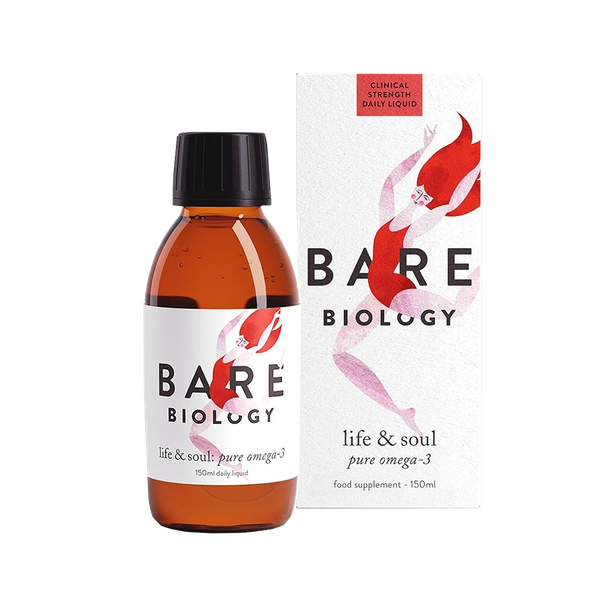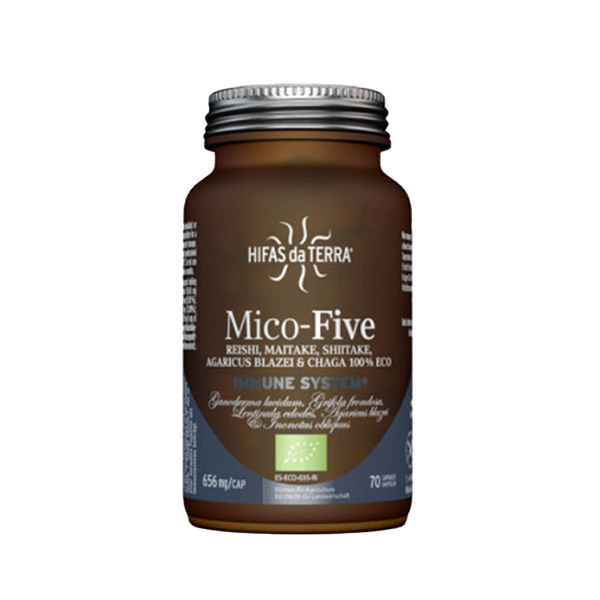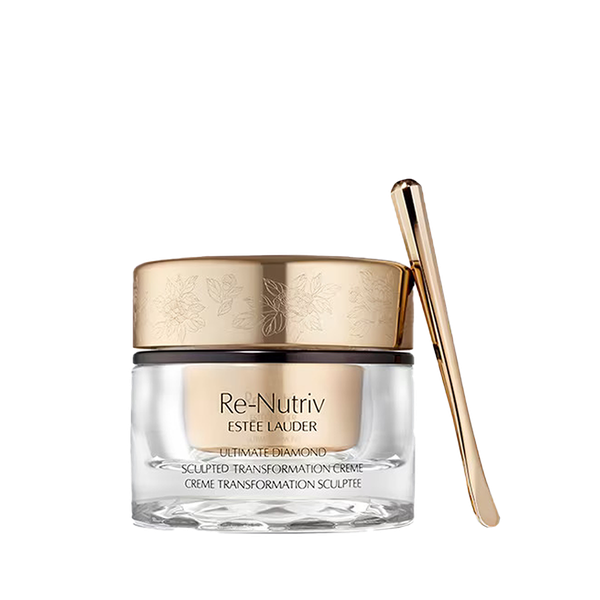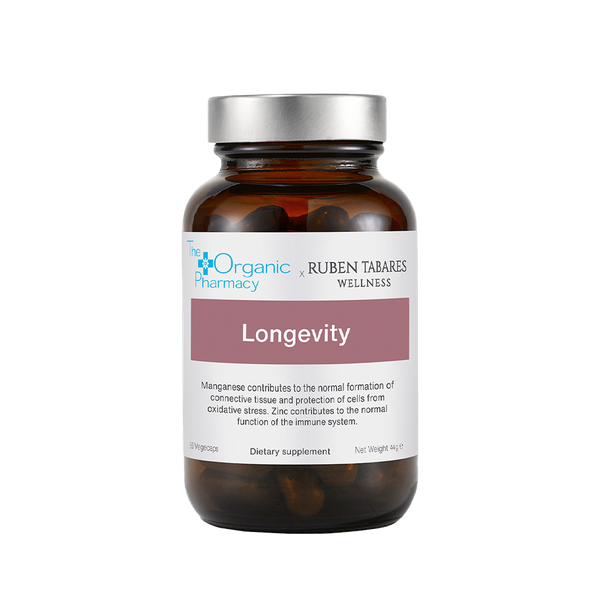How To Live A Longer, Happier Life
What does longevity mean?
Human longevity refers to a person’s lifespan. It’s affected by factors such as genetics, lifestyle, nutrition, healthcare, social interaction and environmental influences. Increasingly, though, there is a focus on achieving not just a long life, but a healthy one. Dr Geoff Mullan from Human People, a company that focuses on ‘youthful ageing’, says that longevity is now about how long you live without significant disease.
Which aspects of life can affect our longevity?
There are so many elements that can play a part in our lifespan but, ultimately, it’s about how well we look after our physical and mental health. Dr Tamsin Lewis, founder of Wellgevity, believes modern life is causing all sorts of under-recognised problems such as high toxin exposure and nervous system dysregulation: “Physical activity, sleep and de-stressing play a significant role in influencing our lifespan.”
How can nutrition help with all of this?
Dr Mohammed Enayat of South Kensington longevity clinic Hum2n believes that accelerated ageing is a lot to do with inflammation, and that we should focus on things that decrease inflammation by prioritising nutrition and reducing toxins. He says both blood sugar control and liver clearance are of utmost importance, so it’s important to support them with food full of antioxidants and reduce your alcohol intake. Aim to consume plenty of protein (1g per 1kg of body weight each day), advises Tamsin, and opt for complex carbs over refined carbs (white bread and pasta) and consume a varied diet rich in essential nutrients and polyphenols (think dark and also bright colours).
There’s no need to overdo the supplements but, as Geoff points out, we are unlikely to get everything we need from our food. We need to fill in the nutrient gaps with a good multivitamin that contains bioavailable B vitamins, vitamin D and magnesium. Cytoplan Wholefood Multi Vitamins answers this, while Bare Biology is the go-to for Omega 3, which is important in promoting cellular health. For gut health, Bio-Kult offers a multi-strain probiotic called Everyday. A super-powered antioxidant comes in the form of the Hifas Da Terra Mico Five that helps support the immune system and shield against health threats. The Organic Pharmacy has teamed up with Ruben Tabares, an A-list nutrition and fitness expert, to create an antioxidant-rich supplement called ‘Longevity’ that helps combat inflammation while supporting gut health and metabolism.
Finally, NAD+ is a nutritional supplement that is getting a lot of attention when it comes to promoting longevity. It is involved in various critical cellular processes, including energy metabolism, DNA repair and gene expression. The best way to absorb NAD is via an IV or subcutaneous injections; NAD At Home provides a way to micro-dose at home. It might seem scary to inject yourself, but it’s super simple to use and the hype is backed by robust science.
Everything seems to lead back to the gut these days – does that play a role here?
One of the biggest drivers of chronic inflammation (where our immune system sends out continuous inflammatory cells and substances in reaction to something it doesn’t recognise as normal) is ‘leaky gut’, says Mohammed. Also known as intestinal permeability, it is where the lining of the intestine becomes damaged, allowing substances such as bacteria, toxins and undigested food particles to leak into the bloodstream. It affects digestion, may cause food sensitivities, inflammatory skin conditions, and lead to autoimmune conditions, depression and anxiety. It’s therefore important to focus on gut health by eating fermented foods (sauerkraut, kimchi, kombucha, live yoghurt) and plenty of fibre (green veg, grains, nuts, seeds, beans, berries, oats).
Genetics are clearly a big factor – is there anything that can be done to alter them?
Experts will tell you genetics are our blueprint but not our destiny. We can use epigenetics (the environment that we bathe our genes in) to alter our pathway. Geoff is interested in how our genes affect our metabolic pathways, and looks to find ways to help support our systems and help promote health, rather than focus on what we have inherited.
His company Human People offers tests to show how your body reacts with your genetics, which can be an indication of risk of disease. From this, clients are then given a personalised nutrition and supplement programme.
It might also be worth looking into the GlycanAge test. While ageing is a natural process, it is affected by the accumulation of damage in your body over time, caused by a long-term over-activation of the immune system. This test discovers your ‘biological age’ by focusing on the amount of inflammation in the body, empowering you to make relevant changes.
Are there any lifestyle changes that might help with longevity?
One of the key takeaways in the study of Blue Zones (areas in the world with the longest life expectancy) is that ‘community’ is crucial to all of them. Tamsin emphasises the importance of dedicating time to friends, family and community every day to enrich our lives. Geoff points to studies in Japan that show social interaction plays a positive role in longevity and life satisfaction.
What about more specific treatments to consider?
The Maybourne Group has just launched Surrenne, a longevity members club in Knightsbridge. It combines a multitude of treatments and services covering age science to sports science, nutrition and longevity. Personalised programmes can be created for members based on a robust diagnostic protocol.
Tamsin suggests considering therapies such as hyperbaric oxygen therapy, infra-red saunas, cold exposure, pulsed electromagnetic fields, and light therapy. She is an advocate of EXION in-clinic devices, which promise to help rejuvenate and tighten skin on the body, while the EXION Face boosts the body’s own ability to produce hyaluronic acid, collagen and elastin.
Any last thoughts from the experts?
Tamsin says the key to a long, healthy life lies in ‘bioharmonising’, which is about finding balance. She believes in making sustainable adjustments that are realistic, and cherishing your wellbeing. Take a holistic and integrated approach that involves identifying potential disease risk, getting proper sleep, de-stressing, doing consistent exercise and, of course, maintaining good nutrition.
For more nutrition & wellness tips, follow @LucyMillerNutrition
SHOP LUCY'S FAVOURITES




DISCLAIMER: We endeavour to always credit the correct original source of every image we use. If you think a credit may be incorrect, please contact us at info@sheerluxe.com.


